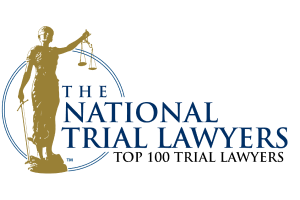Inappropriate Use of Antipsychotic Drugs in Nursing Homes
Antipsychotic drugs are powerful and they can be dangerous, especially when they are administered without the informed consent of nursing home residents or their family members. Sadly, however, the American Association of Retired Persons (AARP) has found that antipsychotics are overprescribed in nursing homes, generally to sedate residents. Below is more about the misuse of antipsychotic drugs in nursing homes, and the dangers associated with receiving the drugs inappropriately.
Using Antipsychotic Drugs as Chemical Restraints
According to the Centers for Medicare and Medicaid Services, almost 300,000 nursing home residents are currently receiving antipsychotic drugs, generally to suppress feelings of anxiety and/or aggression that can be side effects of Alzheimer’s disease and other dementia. However, antipsychotics are approved to treat serious mental illnesses, such as bipolar disorder and schizophrenia, not dementia. In fact, antipsychotics have a “Black Box” warning pertaining to dementia patients, stating the drugs can increase the risk of heart failure, infections, and death.
The reality is antipsychotics aren’t given to dementia patients to treat any specific medical symptoms. They are used as a form of chemical restraint.
A chemical restraint is a drug used to restrict a person’s freedom of movement. Although Medicare and Medicaid programs prohibit chemical restraints, antipsychotic drugs continue to be used for nursing home residents with dementia as a means of behavior control. When nursing homes give antipsychotic drugs to residents with dementia, it is generally for the staff’s convenience—not the patient’s wellbeing. The drugs cause sedation, which is a form of chemical restraint, as opposed to treating any medical symptoms.
Dangerous Associated with Antipsychotic Drugs
The misuse of antipsychotics in nursing homes can harm residents in many ways, and cause serious medical complications, such as:
- Loss of independence
- Over-sedation
- Confusion
- Increased respiratory infections
- Falls
- Strokes
- Death
According to the Office of the Inspector General for the Department of Health and Human Services, the most commonly prescribed antipsychotic medications among nursing home residents are Seroquel, Risperdal, Zyprexa, Abilify, Clozaril, Geodon, and Symbyax. If you see any of these drugs on a list of medications administered to your loved one, it’s important to ask why they have been prescribed.
Contact Our Nursing Home Negligence Attorneys in Atlanta
We know it can be difficult to accurately assess the treatment a loved one is receiving in a nursing home, and keeping track of drug prescriptions can be particularly confusing. For help, please contact the legal team at Katz Personal Injury Lawyers at 404-460-0101. Our Atlanta nursing home negligence attorneys represent clients throughout Georgia, including those in long-term care facilities in Marietta, Duluth, Warner Robins, and Athens.







